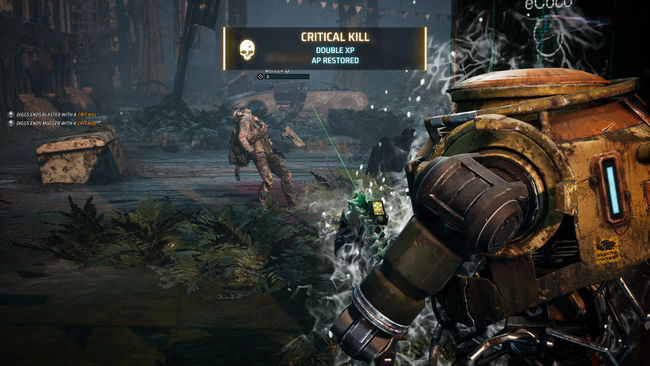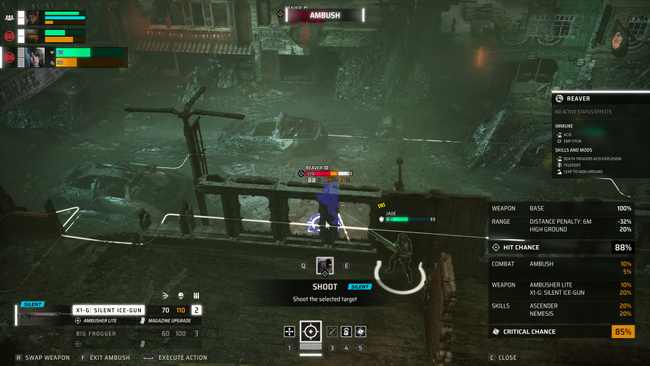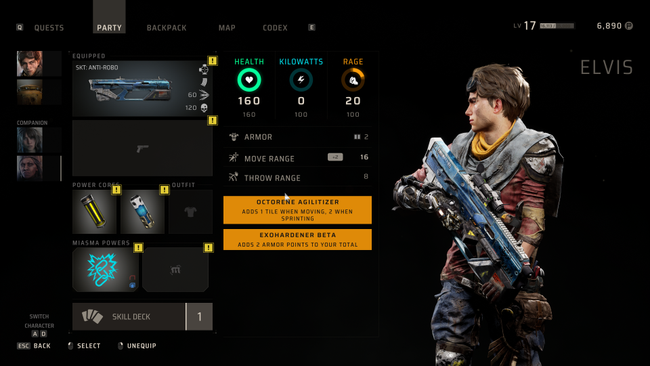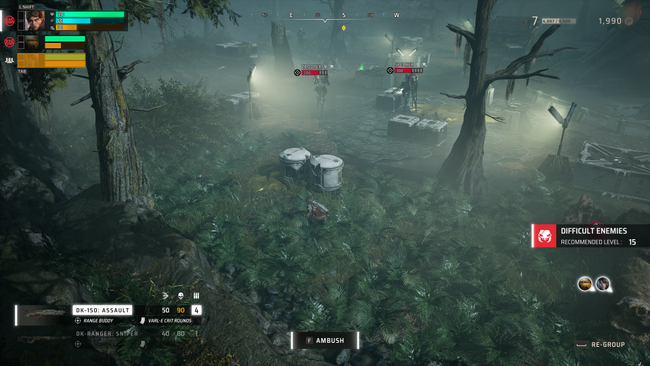
Miasma Chronicles Review
I've always been fond of all sorts of tactical RPGs, but I never got a chance to check out cult classic Mutant Year Zero: Road to Eden from The Bearded Ladies. All I really know about MYZ is that it is directly & heavily influenced by XCOM, and I've enjoyed games that borrow from the same general tactical combat stylings, like Wasteland 3. So when I saw that Miasma Chronicles was the latest from the Swedish developer, I decided not to miss out this time.
If you like tactical RPGs of this nature, you already know what you are getting into to some extent. There a various weapon types with varying ranges of fire like assault rifles, sniper rifles, and shotguns. There a different types of cover that can partially or fully protect you from enemy fire in that direction, assuming your cover doesn't get destroyed. There are various abilities that can push enemies back or move enemies around. Your characters can move once and attack once per turn, typically speaking. Oh, and there are percentages - lots and lots of percentages.
To be clear, Miasma Chronicles is not connected to Mutant Year Zero in any way, outside of some similar art assets and being an isometric turn-based RPG set in a post-apocalyptic world. Combat borrows from a tried-and-true format, and while it may not be especially novel, it's still as compelling as it ever is. Further, despite the wasteland aesthetic, isometric camera angle, and intentionally muted color palette, Miasma Chronicles does look quite nice for the type of game it is, particularly the level of detail found in the game's various environments.

Miasma Chronicles leans on the more challenging end of the scale, where smart tactics are crucial to success and thoughtless mistakes can cost you big time. It's also not a game that you can brute force your way through via grinding or other means. There are no 'random encounters' and your total pool of EXP and money is scarce. Each tactical encounter you take on is bespoke, and preparation before each one is imperative. Not only should you carefully consider each movement in battle to minimize taken damage and maximize damage earned, but you also need to make sure you approach each one properly before combat even begins.
Unlike some similar RPGs, you don't create a squad of units in Miasma Chronicles. You instead earn a total of five characters that will join you throughout the course of the game, starting with main duo Elvis and his robotic "brother" Diggs. The third member that joins your unit is Jade, a mysterious girl who knows how to wield a sniper rifle. Not only does her skillset focus on dishing out high amounts of damage with critical hits, but her weapon is also silenced, meaning she can pick off enemies quietly, as long as they are not too close to the rest of the group.
Pre-battle stealth is a significant portion of the game. If you go into any battle gung-ho without preparation, it'll be the three of you facing off against potentially a dozen foes, which is certainly not in your favor. What you should do instead, is have Jade sneak around the battlefield, picking off stragglers one-by-one until only a core group remains, then take them on. Sometimes certain environmental distractions, like alarming cars and shattering windows can move enemies away from the group, making them easier to pick off without alerting the others. Three against six is much better odds than three against twelve.

That does mean the game leans a bit 'lock and key', at least if you want to be most successful. You cannot simply use an overpowered weapon or 'broken' build to wipe out anything that comes your way. Certain abilities, weapons, or modifications you can make are extremely useful in some battles and might be nigh useless in the next. For example, some weapon scopes will allow you to do more damage to human enemies, but these are useless against any other foes. Some abilities have an EMP effect that will stun robots, but these don't work on anything living. This means you will be making adjustments to your loadouts and skillsets quite regularly throughout the game depending on your next opponent (and luckily skill trees can be re-specced at any time).
To be as clear as possible, I actually enjoy this sort of frequent squad management and effectively countering the baddies that came my way, but if you are the type who would rather set and forget, Miasma Chronicles might be a little tedious. Just to give an emblematic example of this, even at maximum level, you cannot fill out the whole skill tree. You have to decide which skills you want to activate for the next battle; you can't simply just have them all in your arsenal at the same time.
Although I can't be certain how much of this is similar to Mutant Year Zero, one component that Miasma Chronicles places a stronger emphasis on compared to its contemporaries is the exaggerated power of a critical hit. All tactical games incorporate critical hit percentages into the math in some fashion, of course, but the sheer number of abilities, weapons, and powers that affect critical hit chance and damage is substantial. Not only do these hits deal out much more damage, of course, but they can also allow you to earn one additional action, which can be useful for movement, healing, or potentially landing another critical hit. This leads to some dynamic combat where a few critical hits landed can dramatically turn the tide in your favor, and inevitably means you might be tempted to save-and-reload to have a few critical hits land your way.

Unfortunately, Miasma Chronicles' narrative components are where the game struggles the most. The premise is actually interesting at its outset, set in a dystopian world where remnants of society play subservient to god-like overlords known as The First Family. Elvis and Diggs have been trying to find their long-lost mother past a wall of Miasma, a sort of savage semi-conscious nanotech goo that coats vast swaths of the wasteland. The game's first act is solid, too, with a small conflict between humans and mutating frogs escalating into a worldwide trek to take on The First Family. But when the actual wheels of the plot begin to turn, it end ups riddled with on-the-nose cliches and undercooked twists.
Characters and the writing around them don't fair much better. Elvis' reaction to the world around him is not very believable and often becomes aggravating, Jade is super secretive even though her identity is obvious, and Diggs leans hard into a certain type of coded stereotype of a Black character that I could easily understand if some found him outright offensive.
Other components surrounding the excellent tactical combat also fall flat. There aren't too many sidequests overall, but they usually simply amount to "fight some more enemies and return to me". Since Miasma Chronicles' combat stylings are strong, this isn't too bad since it works as simply another excuse to fight more enemies in a different setting. Everything about the quests themselves though, like the writing and NPCs behind them, are easily forgettable.

While the game plays pretty well on PC using a mouse/keyboard setup, even several weeks after launch I still ran into numerous annoying glitches, such as enemies getting stuck in walls, a fallen comrade reviving and acting in a sort of permanent zombie state, and actions not performing in the way they should (a couple of times Diggs tackled an enemy by running away from them and hitting a spot in mid-air). There are also some interface inconveniences that could be shaped up, such as making it more clear which character you have selected. I hope that these sorts of ticky-tack issues are ironed out with time, but for now, it's best to expect some wonkiness here and there.
Miasma Chronicles is a demanding but well-balanced tactical RPG that should scratch the itch of XCOM fans or anyone seeking a modest challenge. It's disappointing that the narrative elements don't hold up on their end, because they easily detract from an otherwise satisfying game.